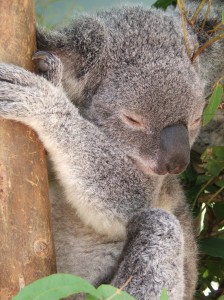 Whether I am home or abroad I always seem to encounter human-wildlife conflict. The mouse in the cupboard, the snake in the flower bed, bats in the attic, elephant(s) raiding crops, crocodiles at the water edge…..I think you get the picture. So what do we do? More times than not it is the wildlife that loses the battle.
Whether I am home or abroad I always seem to encounter human-wildlife conflict. The mouse in the cupboard, the snake in the flower bed, bats in the attic, elephant(s) raiding crops, crocodiles at the water edge…..I think you get the picture. So what do we do? More times than not it is the wildlife that loses the battle.
As human population continues to increase we are faced with the ultimate decision: do we continue down the road we are on, full speed ahead, or do we take a hard look at what we have done and make changes to ensure a sustainable future?
The recent trend in the United States is to get close to nature. I live in one of the most beautiful places in the world, where the Allegheny and Appalachian Mountain ranges collide. Every time I visit one of the big lakes in the area I notice another new home nestled in among nature. It is inevitable to live in an area this rural without at least once experiencing a Black bear wondering across the lawn or a Timber rattler basking on the patio. The unfortunate reality is that animals are often killed out of fear.
No matter where we live, we can always do something to become better environmental stewards. In order to help others we must first help ourselves, and in this case, we must start in our own backyard. In my experience fear is more often than not initiated out of ignorance. It is important to know the wildlife that inhabits the areas where you live and visit, and educate your family. Embrace the unlovables, those that crawl, fly and slither; they help us more than you can imagine. Snakes are a natural rodent control system that does not need to continually be re-baited with peanut butter. Allowing snakes access to your yard and garden will keep rodents numbers in check, as well as the diseases and parasites they carry. Let your children know that if they see a snake avoid it and if they cannot, stand very still and yell for mom or dad. Bats are responsible for eating billions, yes billions, of insects every night. Bats hunt by echo location and can catch a bug midflight with lightening speed and accuracy. A misconception is that bats frequently tangle in human hair, possibly exposing their victim to rabies; this simply is not true. Most creatures are more afraid of us as we are of them. Nobody wants to share their home with bats and for good reason; bat guano can contain disease, bacteria and parasites. Designate wildlife friendly areas around your property; build bat and bird boxes situated a safe distance from your home, so that you can help wildlife find safe havens to rest yet still benefit from their insect devouring capabilities. All creatures fill an important niche in the ecosystem.
Most unwanted wildlife encounters can be avoided; nocturnal visits from bear, raccoons, and opossums can be avoided by simply closing garbage can lids and not leaving pet food outside on decks and patios. However, there are a few animals that habituate to living close to humans and need to be relocated. In most states there are Wildlife Rehabilitators that not only tend to sick and injured wild animals, but also will remove those creatures that are too close for comfort. For example, the state of Connecticut’s Department of Environmental Protection holds training seminars and yearly examinations for those people interested in helping wildlife; an annual license and certification is given upon completion. Most encounters with wildlife that result in human injuries are a direct result of a one-on-one confrontation by a homeowner that is not experienced in dealing with wildlife. If you are confronted with a situation with a wild animal that needs rescued or removed please seek help from a professional. In this digital age, help is only a google search away.
Farmers and herders in range countries in Africa and Indonesia are constantly battling wildlife for resources and space. Who was there first? It doesn’t really matter. Individuals living in these remote areas are learning how to coexist with wildlife through a variety of natural deterrents. Recently in the news, researchers have discovered active bee hives surrounding crops protect against raiding elephants. In addition, honey can be harvested giving the farmer another form of income. Living with nature is possible; humans just have to make the effort.
Why do we visit wild areas if not to see wildlife? Why do we live in homes surrounded by forests if we do not want to have nature around us? As humans, we long to be immersed into the natural world. Remember that watching wildlife in their natural habitat is a privilege. The gift of nature, and all of its wonderful creatures, is truly the gift that keeps on giving. To ensure future generations are able to enjoy the wonderment of our natural world we must learn to coexist now.